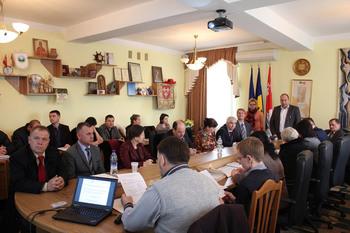Context
The Dniester River and its tributaries constitute the major drinking water reservoir of the Republic of Moldova and Transnistria, the region that broke away from the rest of the country in the early 1990s. They are the main source of water supply for agriculture, industry and the two million inhabitants of the eastern part of Moldova, including Transnistria. The wastewater discharged from the dilapidated and inefficient infrastructure on both banks contaminates the river, the self-cleaning capacity of which is weakening due to the structure of the riverbed and the poor oxygen balance.
Improving the water supply and sanitation (WSS) infrastructure would serve to protect water resources and soils along the Dniester in the long term. However, it requires not only enormous investments but also cooperation between the communities, towns and cities under Moldovan and Transnistrian administration. In particular, the Organization for Security and Co-operation in Europe (OSCE), the Meseberg initiative of the German Government and diverse EU activities have sought for many years to mediate and develop confidence-building measures with a view to resolving this conflict.
The lack of financial resources and constructive inter-municipal cooperation coupled with the inadequate capacity of the WSS operators to deliver efficient, citizen-oriented services are obstacles to improving the relevant infrastructure. The Moldovan Government considers the political, social and health impacts of the poor water supply and sanitation services in the region as a priority development challenge. This view is shared by the development partners in the country and is reflected in the substantial assistance accorded by the donors in the WSS sector.
Objective
The institutional framework for inter-municipal management of water resources has improved.

